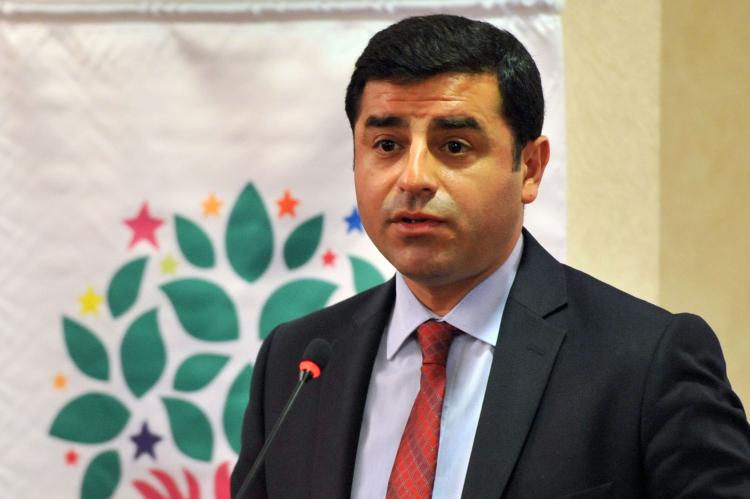HDP co-chair Selahattin Demirtas repeats false claims in NYT
Peoples' Democratic Party’s (HDP) co-chair Selahattin Demirtas writes for New York Times and makes three claims
Turkey’s Peoples' Democratic Party’s (HDP) co-chair Selahattin Demirtas penned an article for The New York Times in which he claimed that the HDP’s gaining of 13 percent in June 2015’s general election negatively affected the peace process between the outlawed Kurdistan Workers’ Party (PKK) and the Turkish government, that Turkey’s President Recep Tayyip Erdogan wants to change the Constitution “to expand his powers”, and that “besieged towns” in Turkey’s majority-Kurdish southeast resemble the devastated cities of Syria.
In the article, Selahattin Demirtas linked the victory his party achieved in June 2015 general elections to the fate of the peace process and to the allegation that President Recep Tayyip Erdogan wants to “expand his powers.”
“Mr. Erdogan became even more intransigent about the peace process after my party, the Peoples’ Democratic Party, or HDP, which advocates for Kurdish rights, cleared for the first time a 10 percent threshold in parliamentary elections in June 2015 and gained entry to the Parliament. This has impeded the president’s ability to change the Constitution to expand his powers,” he said.
As a matter of fact, President Erdogan called on the opposition parties to lift the 10 percent threshold altogether during his premiership. Also, in his first speech since he was elected president, he said “We will run enthusiastically to make the peace process prevail in our country.” For more information on how the peace process ended, please click here.
Demirtas’ second claim was that President Recep Tayyip Erdogan wants to change the Constitution in order “to expand his powers.” For more information about this claim, please click here.
Demirtas also said that “Last August, Kurdish youth groups close to the PKK began an insurgency in some Kurdish towns. The government responded first with tear gas and plastic bullets, later with 24-hour curfews that lasted for weeks and finally with tanks and artillery.” However, he did not give the full account of how this “insurgency” began and why the response of the government turned from tear gas to tanks and artillery.
The PKK is a militant group listed as a terrorist organization by Turkey, the US, the EU and NATO which seeks to establish its Marxist-Leninist ideology in southeastern Turkey. PKK militants have been digging trenches around the cities in the region since last year and attacked civilians several times besides targeting the policemen and military personnel.
Another point Selahattin Demirtas did not voice in his article is that the PKK ended the ceasefire during the high time of Kurdish politics, given the 13 percent vote the HDP gained and the historic improvements that were realized in the realm of Kurdish rights since the ruling Justice and Development Party (AK Party) rose to power. Also, an editorial published in The New York Times on 6 January 2016 mentioned the PKK’s “reckless decision to break a two-year-old cease-fire.”



